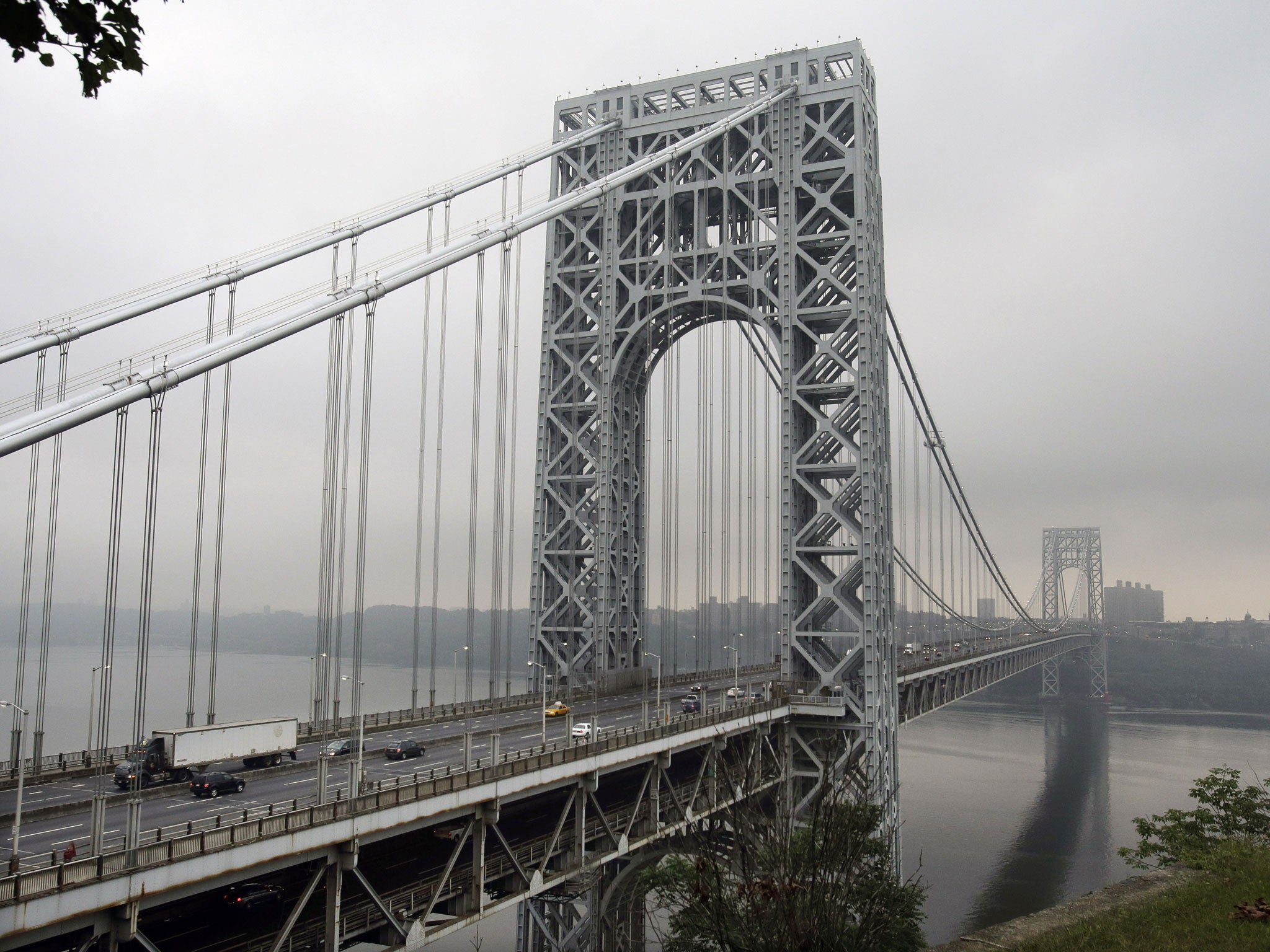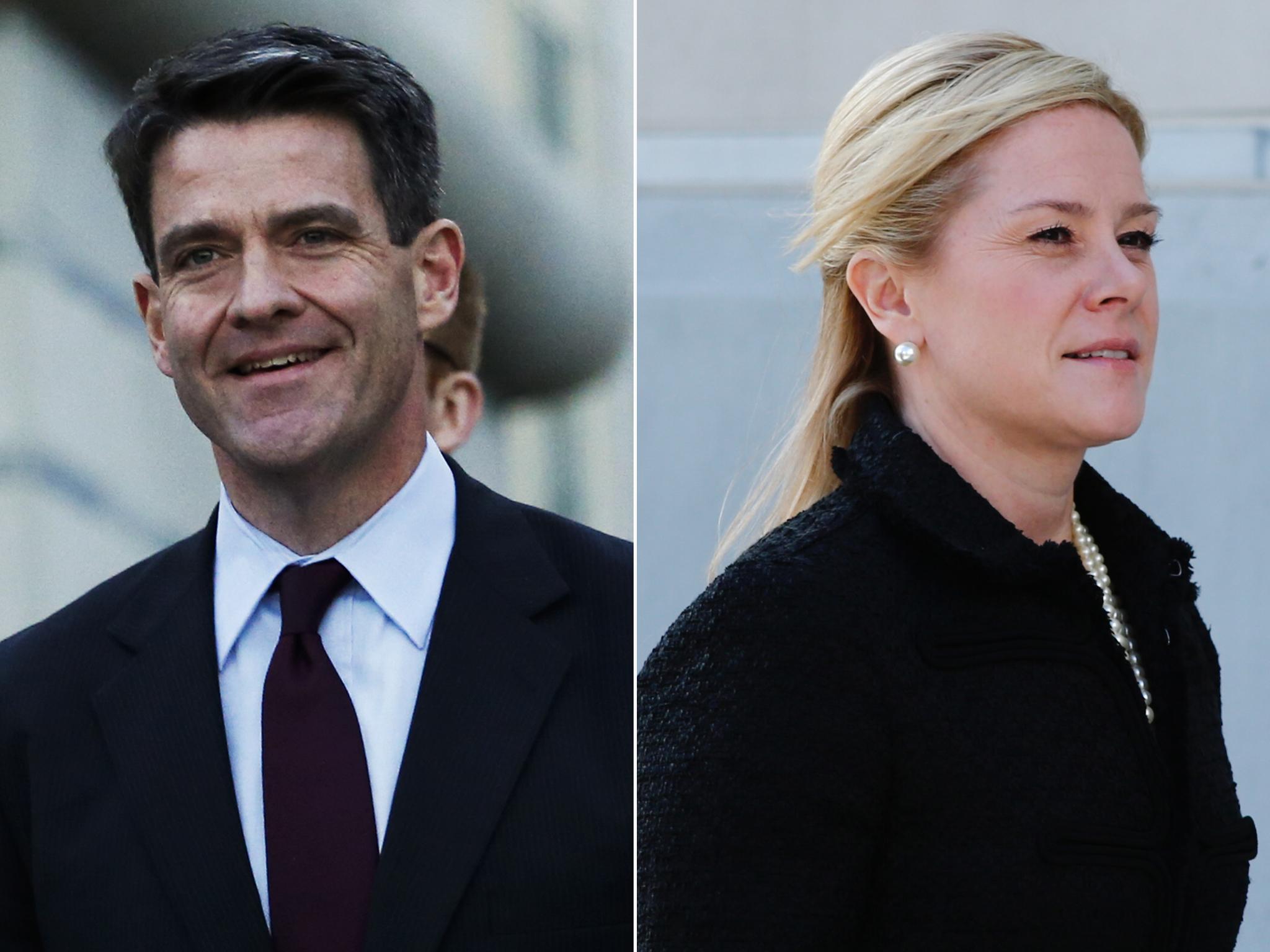Supreme Court unanimously reverses 'Bridgegate' fraud convictions of two aides
'The evidence the jury heard no doubt shows wrongdoing — deception, corruption, abuse of power. But the federal fraud statutes at issue do not criminalise all such conduct'

The Supreme Court has overturned the convictions of two people involved in New Jersey’s ‘Bridgegate’ scandal.
In a unanimous decision, the court said that the government overreached in prosecuting Bridget Kelly and Bill Baroni for their roles in creating a massive traffic jam designed to punish a New Jersey mayor who refused to endorse the re-election of Republican Governor Chris Christie.
Ms Kelly and Mr Baroni were convicted of fraud and conspiracy for scheming in 2013 to create gridlock in Fort Lee, New Jersey, by changing the traffic flow onto the George Washington Bridge to New York City.
The mayor of Fort Lee, Mark Sokolich, a Democrat, had declined to endorse Mr Christie.
Despite throwing out the case, the court was nevertheless damning in its view of the actions of Ms Kelly and Mr Baroni.
Justice Elena Kagan wrote that “for no reason” other than “political payback” the aides “used deception” to alter the flow of traffic to the bridge, in a move that “jeopardised the safety of the town's residents.”
She added: “The evidence the jury heard no doubt shows wrongdoing — deception, corruption, abuse of power. But the federal fraud statutes at issue do not criminalise all such conduct.”
Ms Kelly, former Governor Christie's deputy chief of staff, and Mr Baroni, his top appointee at the Port Authority of New York and New Jersey, argued that they were wrongly convicted and that prosecutors overreached when they were charged under federal fraud laws.

Justice Kagan said that as the two aides did not aim to obtain money or property through their scheme, they could not have violated federal wire fraud laws.
The court ruled that federal fraud laws would be violated only if the aim of the two defendants was “to obtain the Port Authority's money or property.” The scheme was an exercise of “regulatory power” that does not constitute property under the fraud laws, Justice Kagan added.
The pair's 2013 scheme to punish Mayor Sokolich, under cover of a fictitious traffic study, caused four days of traffic jams in the New Jersey city, endangering public health by delaying emergency response vehicles. Included in the evidence against the two was a message Ms Kelly wrote that read: “Time for some traffic problems in Fort Lee.”
In 2017 Ms Kelly received a 13-month sentence, and was weeks away from starting it when the Supreme Court said that it would hear the case. Mr Baroni had begun serving an 18-month sentence but was released from prison after the court's announcement.
The court's ruling further narrows the extent to which the government can prosecute corruption cases against public officials. .
A 2016 decision by the court overturned the bribery conviction of former Virginia governor Bob McDonnell, and in 2010 the court sharply curbed prosecutors’ use of an anti-fraud law in the case of ex-Enron CEO Jeffrey Skilling.
“Having been maligned, I now stand with my family and friends knowing that due process worked. While this may finally have made this case right for me, it does not absolve those who should have truly been held accountable,” Ms Kelly said in a statement.
Michael Levy, Mr Baroni's lawyer, said: “Although the process of getting to this day has been an ordeal, Bill is heartened that the system ultimately worked, even as he recognises how often it fails others who are less fortunate.”
In a statement, former governor Christie lauded the “complete exoneration for my team from the prosecutorial misconduct of Paul Fishman and the Obama Justice Department”.
At the time of the Fort Lee scheme, Mr Christie denied any involvement and was not charged, but the scandal sullied his reputation. His campaign for the 2016 Republican presidential nomination suffered as a result and his standing in New Jersey sagged.
Join our commenting forum
Join thought-provoking conversations, follow other Independent readers and see their replies
Comments